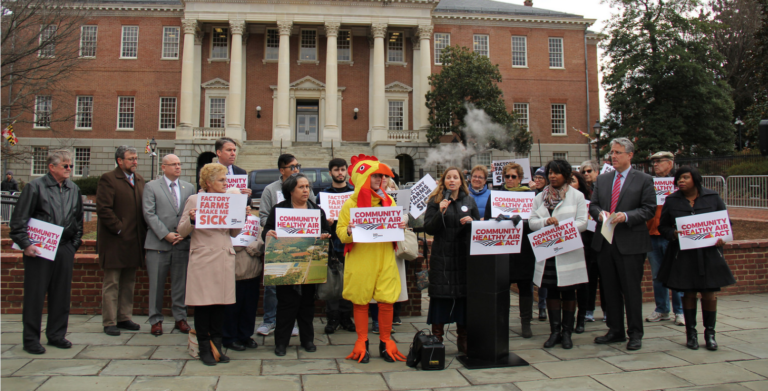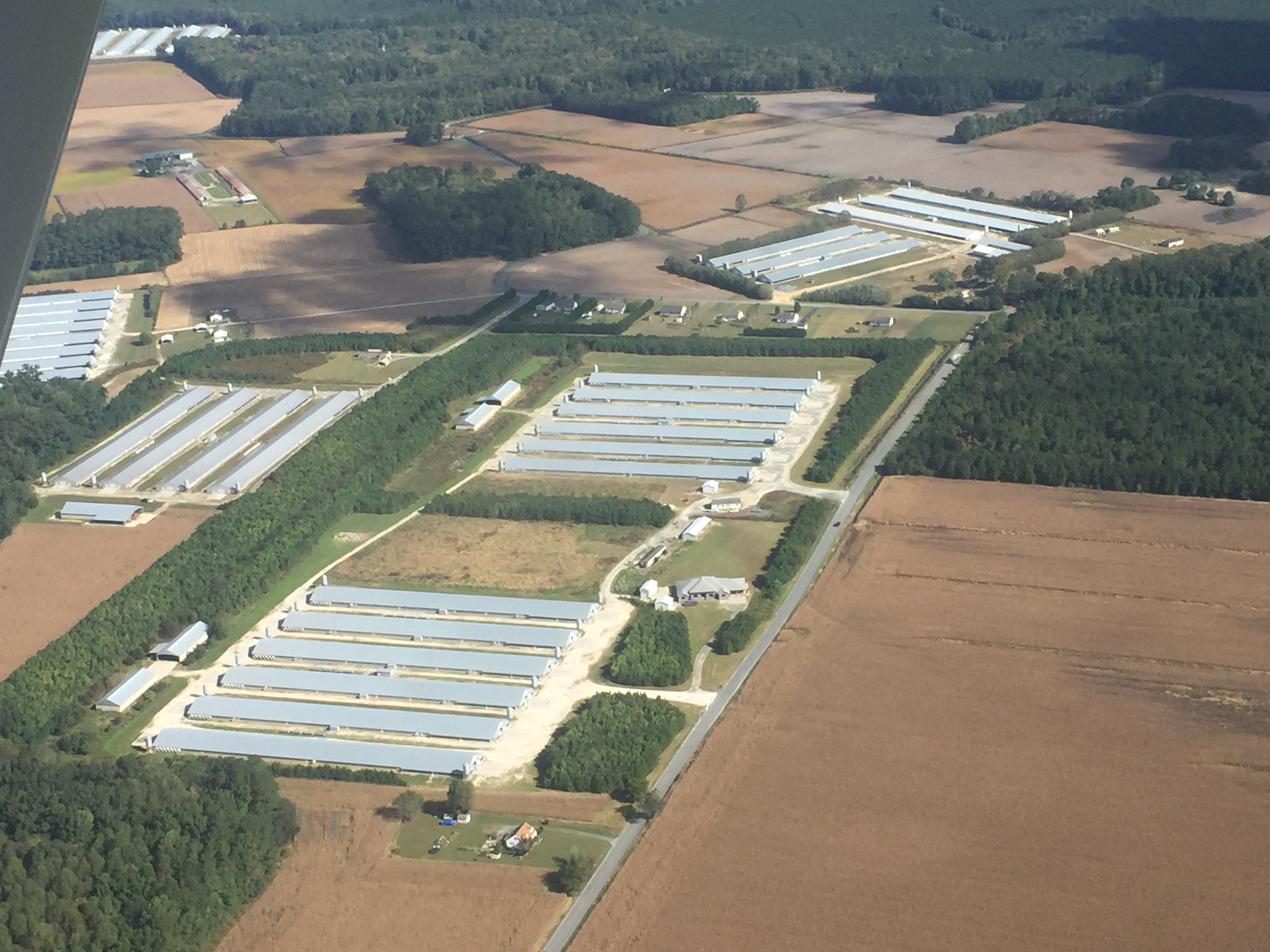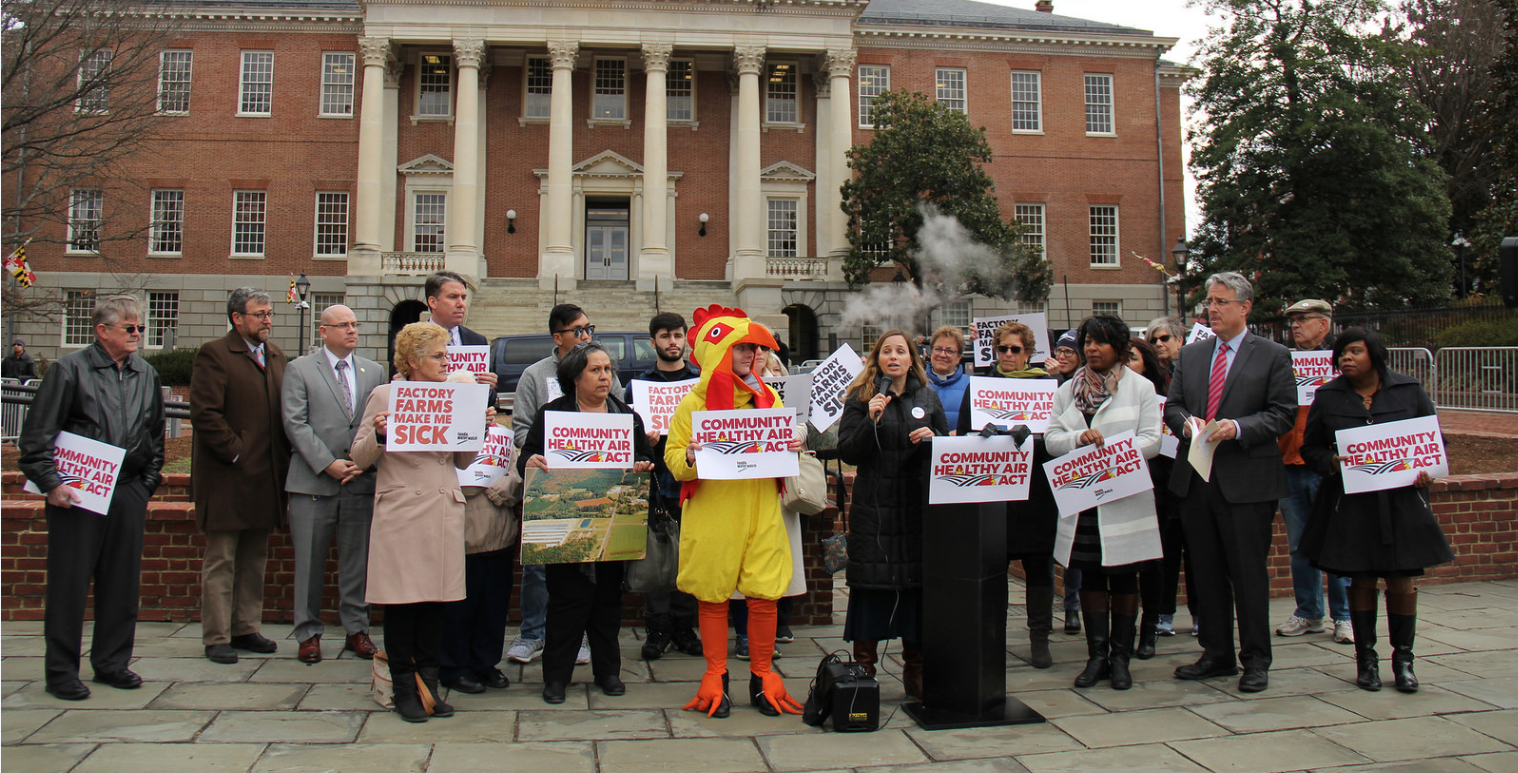Communities United: Assateague Coastkeeper Organizes around Community Healthy Air Act
By: Malaika Elias

Last spring, Assateague Coastkeeper Kathy Phillips was engulfed in a 16-week losing battle to get the Maryland Senate and House to pass legislation requiring the Maryland Department of the Environment to monitor air emissions from industrial animal agriculture operations and assess their impacts on public health. Now she’s preparing to fight the battle again.
Some of the most commonly found air pollutants surrounding concentrated animal feeding operations include ammonia, hydrogen sulfide, methane, and particulate matter. These compounds are particularly harmful to human health, and residents living within close proximity to industrial animal operations face heightened risk of adverse health impacts, especially asthma and respiratory-related illnesses.

At Assateague Coastal Trust, Kathy is mobilizing her community around this legislation—the Community Healthy Air Act (CHAA). She is garnering public support for the bill, which failed during two previous years, alongside Co-director of Food and Water Watch, Michele Merkel. The two are working with community leaders and organizing meetings with key legislators, strategizing for the bill’s introduction in late-January. Kathy is collaborating with several core partners like Protectors of St. Martin River and Concerned Citizens Against Industrial (Concentrated Animal Feeding Operations) CAFOs, who have fought and organized to spur Maryland Department of Environment to review and enforce concentrated animal feeding operations’ permits, as well as investigate the industrial animal operations surrounding lower Eastern Shore communities. The Wicomico chapter of NAACP has also been engaged on this issue due to the disproportionate number of black neighborhoods located close to the operations in Wicomico County and nearby Somerset County.

As Kathy gears up for the third push on the bill she recounts the collaborative effort it took to galvanize support over the past couple of years, along with the stories that continue propelling her into action:
“The most effective means for civic participation has been through the process of organizing public forums, roundtable discussions, and larger town halls with a variety of community members and public health experts. Having those audiences, town halls, and spaces for community education around the act has been really beneficial. We find that leaders emerge within communities in these rural areas and build coalitions, and then we step in and offer resources to help educate those community contingents. Around 3-4 years ago, the Concerned Citizens Against Industrial CAFOs came together in Wicomico county because of the proposed 14-house poultry CAFO that Tyson was planning to put on a small parcel of land in the middle of this suburban middle- to low-income community, directly over their main drinking water aquifer, The Paleo Channel. That particular community is more than 50 percent African American and they already have a dump in the community and didn’t need to have poultry houses placed in their neighborhoods. In the past, this group has also taken guidance from the Protectors of Our Indian River, a Delaware based community organization that stepped up to fight a poultry slaughterhouse on the Indian River where there were already two poultry processing plants, a poultry processing waste spray field, and a coal fired power plant. It’s been a successful strategy to just reach out to certain citizen constituencies and then help them become more organized in their own neighborhood and community groups.
We also needed to switch up our outreach tactic to focus more on public health rather than water quality. The public health aspect really draws the communities together.
Then there are the grueling stories that keep people motivated to work on this issue. When we were fighting the 14-house poultry CAFO, at a county council meeting where the Concerned Citizens Against Industrial CAFOs attended, a woman in her late 70’s got up and told a story about how she and her husband wanted to get away from D.C. due to what they thought was unhealthy air there. So they explored the Eastern Shore and fell in love with Salisbury and bought a house. They were living on well water, and shortly after moving there, her husband developed cancer and passed away; she later developed cancer as well. That’s why she was so concerned about the CAFO being put on the aquifer. People who depend on wells don’t have treated water.
Monica Brooks, a key activist in the fight against CAFOs, lives in a neighborhood within close proximity to a CAFO and within a couple years of her living there, one of her daughters had to go on an inhaler. Her youngest daughter was also diagnosed with asthma and needs an inhaler, despite no history of asthma in the family. This is most likely environmentally related. According to the Maryland Governor’s Office for Children 2010 report, one in four middle schoolers in Wicomico County have been diagnosed with asthma. These narratives were a large part of our campaign last year.
We can’t keep having things like this happen where people move to this area with no prior history of asthma or cancer, allergies, etc., and then get sick. The Maryland Department of the Environment needs to come and investigate, but it’s going to take an uprising of our communities to make that happen, and it will take lots of litigation and ugly battles before it gets better. We’re willing to take on that fight until the CHAA is passed and our communities are safe again.”
As support and enforcement of the Clean Air Act fade at the federal level, it’s more important than ever that people like Kathy and the communities on the lower Eastern Shore keep fighting for the right to clean air and water.
If Maryland fails to pass the CHAA again in the upcoming legislative session, the state will send a heartbreaking message to some of its most vulnerable residents that their human right to clean air is second to profits from industrial agriculture. Stay up to date on Assateague Coastkeeper’s efforts on the CHAA here.